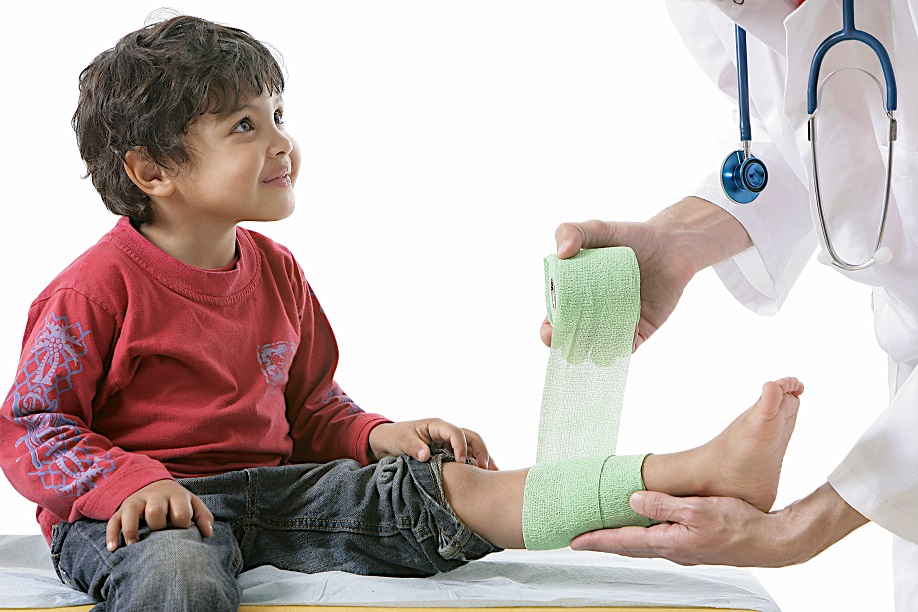 Parenthood makes a couple proud and happy but looking after a child from birth to adulthood is a major responsibility . A child up to the age of 5 is delicate and requires a lot of care and it is advisable to visit a paediatrician every month for regular check-ups. The paediatrician ensures the child is healthy by providing appropriate treatment and monitors the height and weight of the baby.
Parenthood makes a couple proud and happy but looking after a child from birth to adulthood is a major responsibility . A child up to the age of 5 is delicate and requires a lot of care and it is advisable to visit a paediatrician every month for regular check-ups. The paediatrician ensures the child is healthy by providing appropriate treatment and monitors the height and weight of the baby.
It is important to compare the development of the child with the average growth of a typical Indian Child. In case the child’s growth is outside the normal range (which is about ± 10% of the average value), the paediatrician can recommend a change in diet or even medication if necessary.
|
Average height and weight of boys at different ages
|
|||||||||||||||||||||||||||||||||||||||||||||||||||||||||||||||||||||||||||||||||||||||||||||||||||||||||||||||||||
|
|||||||||||||||||||||||||||||||||||||||||||||||||||||||||||||||||||||||||||||||||||||||||||||||||||||||||||||||||||
|
(Source: Nutrient Requirements and Recommended Dietary Allowances for Indians, I.C.M.R. 1990.) |
 The Infant Mortality Rate is very high in India. From one month to five years of age, the main illnesses to watch out for are Jaundice, Pneumonia, Diarrhoea, Malaria & Measles. Over 90% of children with HIV are infected through mother-to-child transmission; this can be prevented with anti-retrovirals, as well as safer delivery and feeding practices.The Indian Medical Association has given a list of Immunization Program to protect a child from dreadful diseases.
The Infant Mortality Rate is very high in India. From one month to five years of age, the main illnesses to watch out for are Jaundice, Pneumonia, Diarrhoea, Malaria & Measles. Over 90% of children with HIV are infected through mother-to-child transmission; this can be prevented with anti-retrovirals, as well as safer delivery and feeding practices.The Indian Medical Association has given a list of Immunization Program to protect a child from dreadful diseases.
| Sl No. | Age | Disease | Vaccination | Remarks |
| 1 | AT BIRTH | HEPATITIS B | HEP B VACCINE -I |
|
| 2 | AT BIRTH | POLIO | ORAL PV 0 DOSE |
|
| 3 | BIRTH TO 6 WK | TUBERCULOSIS | BCG |
|
| 4 | 4 -6 WEEKS | HEPATITIS B | HEP B VACCINE -II |
|
| 5 | 6 WEEKS | DIPHTHERIA PERTUSIS TETANUS POLIO | DPT-I OPV -I |
|
| 6 | 10 WK | DIPHTHERIA PERTUSIS TETANUS POLIO HEPATITIS B | DPT-II OPV-II HEP B VACCINE III* | *DELHI GOVT RECOMMENDATION |
| 7 | 14 WEEKS | DIPHTHERIA PERTUSIS TETANUS POLIO | DPT-III OPV- III HEP B VACCINE IV* | *DELHI GOVT RECOMMENDATION |
| 8 | 24 WEEKS | HEPATITIS B | HEP B VACCINE III* | *IAP RECOMMENDATION |
| 9 | 9 -12MTHS | POLIO MEASLES | OPV-IV MEASLES |
|
| 10 | 15-18 MTHS | MUMPS MEASELES RUBELLA | MMR* |
|
| 11 | 18 MTHS | DIPHTHERIA PERTUSIS TETANUS POLIO | DPT –BOOSTER I OPV –V | *RECOMMENDED BY DELHI GOVT & IAP ONLY |
| 12 | 24 MTHS | TYPHOID | TYPHOID* | *IAP RECOMMENDATION |
| 13 | 4-5 YR | DIPHTHERIA PERTUSIS TETANUS POLIO | DPT BOOSTER – II OPV -VI |
Vaccines are available to protect children from Chicken Pox (Varicella Virus), Meningitis (Meningococcal), Swine-Flu (HINI), Jaundice (Hepatitis A). Physician’s advice is required to administer these vaccines depending up on child’s age.

- Quality care during pregnancy;
- Safe delivery by a skilled birth attendant
- Strong neonatal care: Immediate attention to breathing and warmth, hygienic cord and skin care, and early initiation of exclusive breastfeeding.
- A Child's health includes physical, mental and social well-being
- Nutrition and fitness are the cornerstones of children's health
- Basics of keeping children healthy, include offering them healthy & nutritious foods, making sure they get enough sleep and exercise and ensuring their safety. Healthy food choices now sets the stage for a lifelong healthy diet
- Keeping the child in a safe & clean environment
- Significant weight gain or loss
- Sleep problems or change in behaviour
- Fever higher than 102
- Rashes or skin infections
- Frequent sore throats
- Breathing problems
- The ideal children's medicine is one that suits the age, physiological condition and body weight of the child taking them and is available in a flexible liquid or solid oral dosage. Solid tablet/capsule can be taken whole, dissolved in a variety of liquids, or sprinkled on foods, making it easier for children to take.


